Films from the country "bresil", sorted by revenue
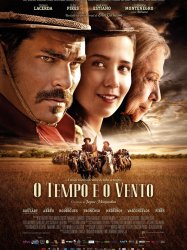
Time and the Wind (2013)
, 1h55Origin Bresil
Genres Drama, War, Historical
Actors Thiago Lacerda, Marjorie Estiano, Fernanda Montenegro, Cléo Pires, Mayana Moura, Vanessa Lóes
Based on the novel's trilogy of the same name, by Erico Verissimo, Time and the Wind follows 150 years of family Terra Cambará and their opponent Amaral family. The history of struggles between the two families begins in the missions and runs until the end of the 19th century. The film also features the period of formation of the State of Rio Grande do Sul and the dispute of territory between the Portuguese and Spanish crowns.

Trap.com (2011)
, 1h35Origin Bresil
Genres Comedy, Romance
Actors Fernanda Paes Leme, Marcos Caruso, Alexandre Nero, Carol Castro, Milhem Cortaz, Fabíula Nascimento
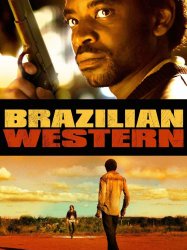
Brazilian Western (2013)
Origin Bresil
Genres Drama, Crime, Romance, Western
Themes Musical films
Actors Ísis Valverde, Juliana Lohmann
João do Santo Cristo (Fabrício Boliveira) was raised in the countryside of Bahia to his parentes in a poor, small farm. His father was shot dead by a police officer as a punishment for harming the cop's brother, who was himself hurting João earlier for trying to steal some candies. When João is older, his mother dies too and he decides to leave home for Brasília, to meet a relative he discovered by looking at some old pictures. Before leaving town, however, he executes his father's killer, and is caught at the bus. After doing time in prison, he is finally able to go to Brasília.
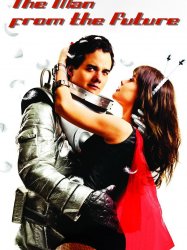
The Man from the Future (2011)
, 1h46Origin Bresil
Genres Science fiction, Comedy, Romantic comedy, Fantasy, Romance
Themes Time travel films
Actors Wagner Moura, Alinne Moraes, Gabriel Braga Nunes, Maria Luísa Mendonça, Lívia de Bueno, Jean-Pierre Noher
In 2011, João "Zero" (Moura), a bitter but brilliant physicist, spends his days brooding over a fateful night 20 years before when he was publicly betrayed and humiliated at a college party by his girlfriend. He now heads one of the largest scientific projects in Brazil, but his eccentricities and tantrums have brought him to the verge of being fired by his former college roommate and current sponsor, Sandra.

Central Station (1998)
, 1h53Directed by Walter Salles
Origin Bresil
Genres Drama, Comedy-drama
Themes Transport films, Road movies
Actors Fernanda Montenegro, Matheus Nachtergaele, Marília Pêra, Othon Bastos, Otávio Augusto, Caio Junqueira
Dora is a retired schoolteacher who has become embittered. She works at Rio de Janeiro's Central Station, writing letters for illiterate customers, in order to make ends meet. She can be impatient with her customers and sometimes does not mail the letters she writes, putting them in a drawer or even tearing them up. Josué is a poor 9-year-old boy who has never met his father, but hopes to do so. His mother sends letters to his father through Dora, saying that she hopes to reunite with him soon, but when she is killed in a bus accident just outside the train station, the boy is left homeless. Dora takes him in and traffics him to a corrupt couple, but she is made to feel guilty by her neighbor and friend Irene and later steals him back.
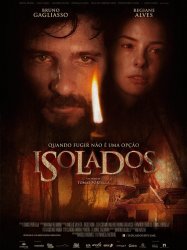
Isolados (2014)
Origin Bresil
Genres Thriller, Horror
Actors Bruno Gagliasso, Regiane Alves, José Wilker, Juliana Alves
The film tells the story of Lauro, a young psychiatrist who fell in love with his former patient Renata. One day, they decide to travel to the mountains in search of tranquillity, without knowing that the site houses a serial killers couple, which are targeting women in the region. Isolated, they will have to fight alone for their lives.
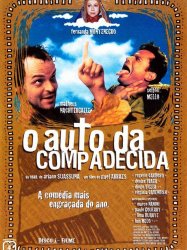
A Dog's Will (2000)
, 1h44Origin Bresil
Genres Drama, Comedy, Fantasy, Adventure, Western
Themes Films about religion, Films based on plays
Actors Matheus Nachtergaele, Selton Mello, Lima Duarte, Denise Fraga, Marco Nanini, Paulo Goulart
The plot concerns the adventures of João Grilo (Matheus Nachtergaele) and Chicó (Selton Mello), the most cowardly of men. Both struggle for daily bread in a telling representation of the life of the poor in North-East Brazil (O Nordeste) and gull a series of comical stereotypes - baker, landowner, and priest - in a series of interrelated episodes united by the passion of the adulterous baker's wife for her little dog who dies from eating the food she supplies to them as occasional workers, and the daughter of the landowner Antônio Morais (Paulo Goulart) - a magnificent comic character who represents the colonial pretensions of the erstwhile "colonial" class who owned the great estates (or "fazendas") of the region in which sugar production was central to a once-booming economy.
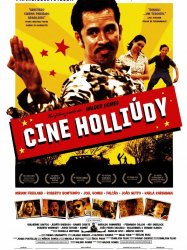
Cine Holliúdy (2013)
, 1h31Origin Bresil
Genres Comedy
The arrival of television in the country side of Ceará, in the 70s, put into question the small movie theaters businesses. But a hero named Francisgleydisson, decided to fight to keep alive his passion for cinema.
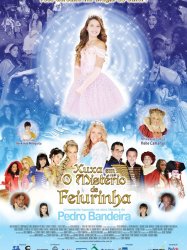 , 1h19
, 1h19Origin Bresil
Genres Romantic comedy, Fantasy, Adventure, Musical, Romance
Themes Musical films, Children's films
Actors Xuxa Meneghel, Sasha Meneghel Szafir, Luciano Szafir, Angélica Ksyvickis, Samantha Schmütz, Hebe Camargo
Famous princesses of books and classic films such as Snow White, Cinderella, Sleeping Beauty, Rapunzel and Belle are convened when Little Red Riding Hood announced the disappearance of princess Feiurinha. To save the kingdom in which they live, they decide to embark on a journey to find Feiurinha.
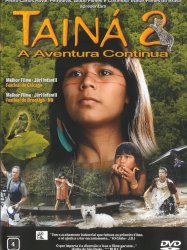 , 1h16
, 1h16Origin Bresil
Genres Adventure
Themes Children's films
Actors Eunice Baía
The evil woman Zuzu gets these two men to goto the jungle and take the animals and this little amazon jungle girl Tainá have to save the animals.
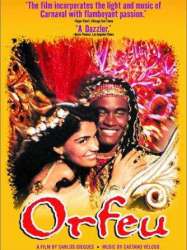
Orfeu (1999)
, 1h50Directed by Carlos Diegues
Origin Bresil
Genres Drama, Fantasy, Musical, Crime, Romance
Themes Films based on mythology, Théâtre, Films based on Greco-Roman mythology, Films based on plays, Films based on Greco-Roman mythology
Actors Murilo Benício, Patrícia França, Milton Gonçalves, Isabel Fillardis, Stepan Nercessian, Cássio Gabus Mendes
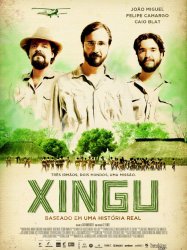
Xingu (2012)
, 1h42Origin Bresil
Genres Drama, Documentary, Historical
Actors Caio Blat, João Miguel, Fábio Lago, Maria Flor
The story takes place in the 1940s when the Villas-Bôas brothers—Claudio (João Miguel), Leonardo (Caio Blat) and Orlando (Felipe Camargo)—start an exploratory expedition into the Xingu River. They make contact with the local tribes, learn to live in the rainforest, and persuade a reluctant government to found the Xingu National Park.
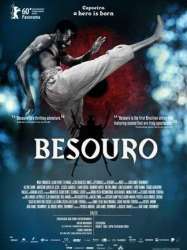
The Assailant (2009)
, 1h35Origin Bresil
Genres Drama, Martial arts, Biography, Fantasy, Action, Adventure, Martial arts
Themes Films about slavery, Films about racism, Sports films, Martial arts films
Actors Irandhir Santos
Un tout jeune orphelin, Manuel Henrique Pereira, est initié par Maître Alipio à la capoeira. Il deviendra « Besouro », le scarabée, le Maître des Maîtres. Alipio devient également son tuteur et son ami, lui enseignant, au-delà de la discipline de cet art, la justice de cet art, la justice et le combat contre les préjugés raciaux. Bientôt le colonel Venancio commandite l’assassinat d’Alipio…
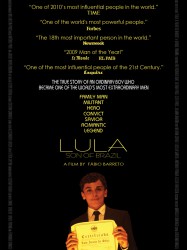
Lula, the Son of Brazil (2010)
, 2h8Directed by Fábio Barreto
Origin Bresil
Genres Drama, Biography, Historical
Themes Seafaring films, Transport films, Political films, Films about Latin American military dictatorships
Actors Rui Ricardo Dias, Glória Pires, Cléo Pires, Juliana Baroni, Milhem Cortaz, Lucélia Santos
The film begins in October 1945 in Garanhuns, a municipality in the countryside of Pernambuco, when Luiz Inácio da Silva, nicknamed Lula, is born as the seventh child of Dona Lindu and Aristides. Two weeks after his birth, Aristides moves to Santos, a coastal city in São Paulo, with Dona Mocinha, a cousin of Dona Lindu. Lindu raises Lula's siblings alone until December 1952, when the family moves to Santos to meet the patriarch. Upon their arrival, Dona Lindu discovers that Aristides had formed a second family with Dona Mocinha.
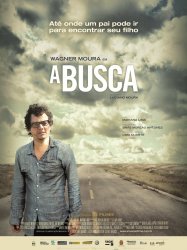
Father’s Chair (2012)
, 1h36Origin Bresil
Genres Drama
Actors Wagner Moura, Lima Duarte, Mariana Lima
Theo is a doctor that leads a good life in a wealthy Brazilian neighborhood. He always gave priority to work, leaving the family at second plan, but little by little Theo discovers that everything around him is collapsing. His mentor and father figure is dying and his wife wants to divorce him. But nothing could prepare him for the day that his 15-year-old son, Pedro, disappeared without a trace. Theo embarks on a quest that leads him through Brazil, discovering what really matters to him. Searching for his missing son, Theo finds himself.
 Connection
Connection